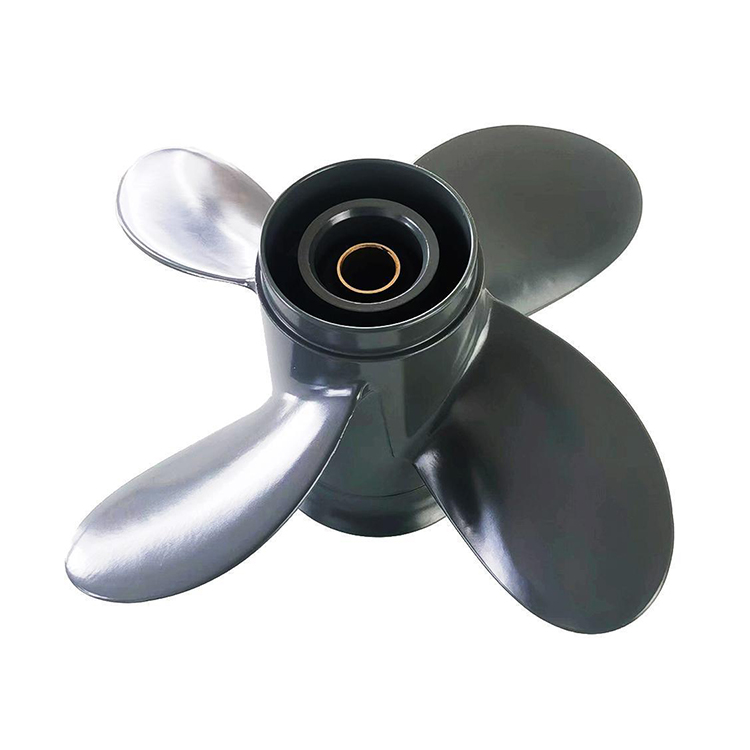Choosing the right propeller for your boat can significantly impact performance, fuel efficiency, handling, and even the lifespan of your engine. Among the many options available, the debate between a 2 blade outboard propeller and a 4 blade aluminum boat prop is one that comes up frequently, especially for recreational boaters, anglers, and water sports enthusiasts. But what are the actual differences between these two types, and how do they perform in real-world boating scenarios?

To answer that, we need to compare their design characteristics, advantages, limitations, and appropriate use cases.
A 2 blade propeller typically features two evenly spaced blades extending from a central hub. This design is common in smaller, lightweight outboard motors, often used on dinghies, sailboats, and compact fishing boats. The main benefit of a 2 blade propeller is its lower drag and higher top speed efficiency. With fewer blades creating resistance in the water, a 2 blade prop can spin more freely, resulting in higher RPMs and improved acceleration—especially in lightweight setups.
Another advantage lies in its simplicity and ease of maintenance. With only two blades, there's less material exposed to wear and damage from underwater debris, and replacement costs are typically lower. For vessels operating in clean, open waters where load and maneuvering demands are minimal, a 2 blade propeller often performs reliably.
However, this simplicity comes with trade-offs. A 2 blade propeller usually provides less thrust, especially at low speeds or under heavier loads. It may also cause more vibration, which can be uncomfortable during extended use. Additionally, in rough water or when pushing a fully loaded boat, the 2 blade design can struggle with grip and efficiency.
What Are the Characteristics of a 4 Blade Aluminum Boat Propeller?
A 4 blade aluminum propeller, by contrast, is built with four blades that offer a more evenly distributed thrust pattern. This design provides enhanced low-end power, improved grip in the water, and better handling, particularly in tight maneuvers or choppy conditions. It is especially well-suited to boats that require consistent performance while carrying gear, passengers, or heavy fuel loads—like pontoon boats, bay boats, or vessels used for towing.
Aluminum, while not as strong as stainless steel, offers a good balance of light weight, affordability, and corrosion resistance, particularly in freshwater environments. For many recreational users, aluminum props are a practical and cost-effective choice.
One of the biggest benefits of a 4 blade aluminum propeller is its ability to "hold" the water better during sharp turns or in heavy seas, reducing ventilation (air bubbles disrupting blade efficiency) and improving control. It also typically results in smoother acceleration and lower vibration, contributing to a more comfortable ride.
On the downside, the additional blade surface area creates more drag. This can reduce top-end speed slightly compared to a 2 or 3 blade propeller. Boats using 4 blade props may also experience a modest increase in fuel consumption due to the greater resistance in the water.
Performance Comparison: Which Prop Works Better in What Conditions?
When comparing the two side by side, it becomes clear that neither propeller is universally "better"—it depends on what type of boating you do and the specific needs of your vessel.
Feature 2 Blade Outboard Propeller 4 Blade Aluminum Boat Propeller
Top Speed Potential Higher (less drag) Slightly lower
Acceleration Faster in light setups Smoother, especially under load
Load Handling Less capable Better with heavy loads
Maneuverability Less stable at low speeds Improved handling
Comfort (vibration/noise) More vibration Smoother operation
Efficiency at Low Speeds Lower Higher
Ideal Use Small, light boats; clean water Heavier boats; rough water; towing